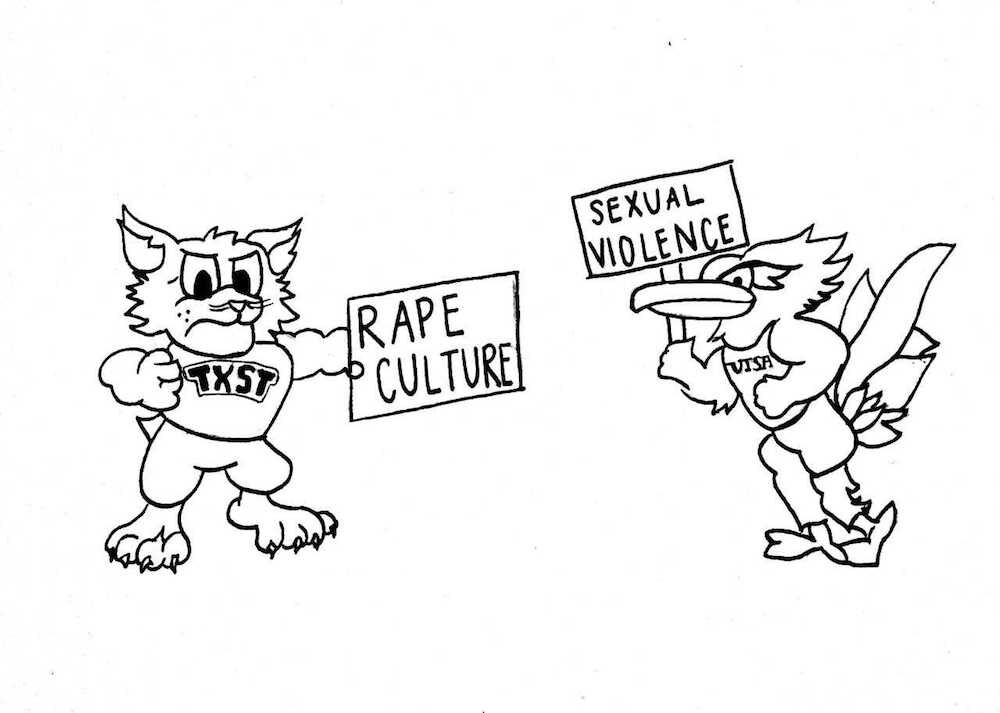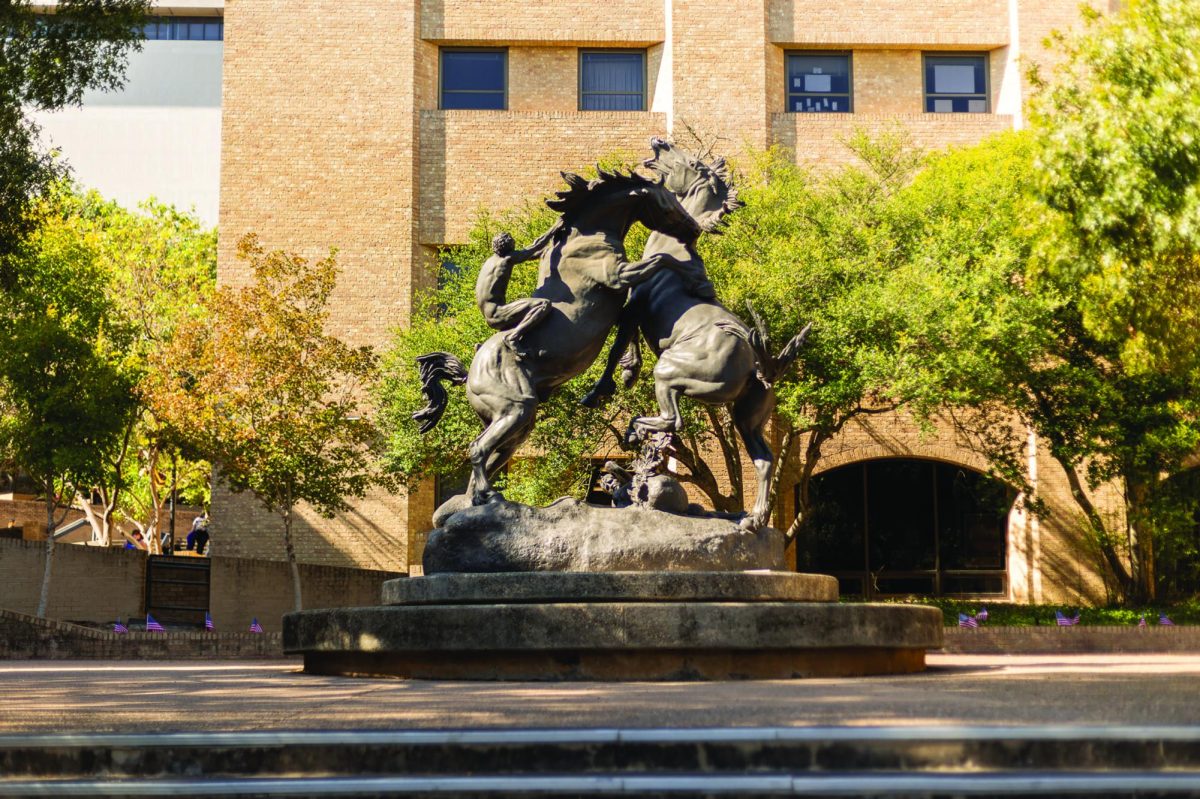In anticipation of the Sept. 22 football game between Texas State and the University of Texas at San Antonio, Roadrunners took to Twitter for some pre-showdown banter using #TexasStateHateWeek. Although most of the tweets under the hashtag were light-hearted jabs, sexual objectification was obviously present. Jokes of its kind are almost always vile, but they feel particularly problematic in our current socio-political landscape.
Multiple tweets under the hashtag included pictures of a homemade banner with the words “TAKE IT LIKE A BITCH #TEXASSSTATE” sprawled across a white bed sheet and accompanied by a picture of a humanlike roadrunner engaged in a sexual act with a bobcat.
The banner was posted on social media on Sept. 19, less than a week after Supreme Court nominee Brett Kavanaugh was accused of sexually assaulting a woman when they were both in high school.
Of course, it’s unrealistic to expect every college student to stay informed on current events and the banner itself was probably not heavily influenced by Kavanaugh, but it does highlight the extent to which sexual assault has been normalized, particularly by young people.
In fact, the culture that surrounds college football seems to be notably susceptible to sexual harassment. A recent study co-conducted by a Montana State University economics professor found significant evidence that sexual assault reporters filed by 17 to 24-year-old women at Division I schools increased by 41 percent on home football game days and 15 percent on away game days.
In July, a Baylor student settled a major rape case that resulted in the removal or resignation of its football coach, athletic director and university president for mishandling the incident. The victim alleged she was gang-raped by eight Baylor football players.
Still, it seems like every fall there are people who find it acceptable to be sexually aggressive in their team rivalry. This display of carelessness toward sexual assault gives context to the allegations against Kavanaugh. When references to rape are considered jokes to establish dominance over other individuals and institutions, it is diminishing the act of sexual assault and is viewed as a light subject.
To be clear, these are not sweeping judgments on all college football players and fans, but rather a serious concern with the toxic hypermasculine presence in college football culture. It’s even more reason for concern when it shows up in one of the least competitive rivalries in the state. No one is disputing that Texas State football is, historically, pretty atrocious. Rape normalization aside, sexually charged insults are gross overkill. Still, the itch to use such language seems to be too difficult for some people to ignore.
College campuses are where culture breeds. The prevalence of sexual assault highlighted by the #MeToo movement either starts with or is exacerbated by the attitudes displayed on campuses across the country. As students, it’s our responsibility to consciously denormalize sexual violence and engage in healthier displays of school pride. Perhaps when next season’s rematch comes around, student fans of both schools can focus their attention on school pride and the love of the game and leave the misogynistic rhetoric out of it.
– May Olvera is a journalism senior
Categories:
School sports rivalries promote sexual violence
October 2, 2018
0
Donate to The University Star
Your donation will support the student journalists of Texas State University. Your contribution will allow us to purchase equipment and cover our annual website hosting costs.
More to Discover








